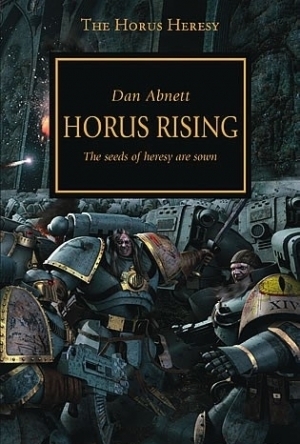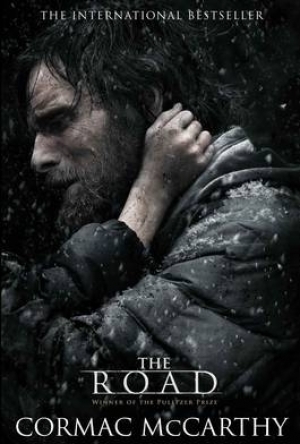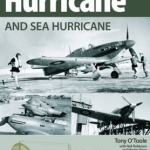
Hawker Hurricane and Sea Hurricane
Martin Derry and Neil Robinson
Book
When Sidney Camm's masterpiece, the Hawker Hurricane, entered RAF service in late 1937 it quickly...
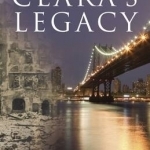
Clara's Legacy
Book
One September day in New York, Clara Reinecke gives her grandson, Jonathan, a composer and lecturer...

Mondly: Learn American English Conversation Course
Education and Travel
App
Learn American English with free lessons daily. Let Mondly teach you the American English language...
Dr Dystopian (526 KP) rated The Horus Heresy - Book 1: Horus Rising in Books
Jan 8, 2018
The 1st section of the book nicely introduces the main characters of the Sons of Horus consisting of Horus Lupercal, who has recently taken over as the Warmaster of Imperium of Man's Great Crusade, and his Mournival of 1st Captain Abaddon, 2nd Captain Torgaddon, 4th Captain Sejanus and 5th Captain Little Horus. With the death of Sejanus in the opening pages of the book we are introduced to the main protagonist of this book (and the following 2) in 10th Captain Loken along with some more supporting characters such as remembrancers, the Warmaster equerry Maloghurst and various other space marines.
The book follows Loken and the Sons of Horus as they, and the 63rd Expeditionary Fleet, bring world Sixty Three Ninteen to compliance and Lokens doubts about his role within the mournival and the morality of their campaign. Towards the end of section one Loken is faced with a fellow space marine who has been corrupted by chaos and attempts to kill him. This is Lokens first experience with chaos and, as such, he is unfamiliar with what has corrupted is Astartes comrade and subsequently forced to cover it up by the rest of the mournival and Horus himself.
Part 2 brings in the III Legion, The Emperors Children, and introduces Lord Commander Eidolon, 10th Captian Tarvitz and 13th Captain Lucius who have received a distress signal from the Blood Angels legion currently engaged against Megarachnids on the world Murder.
Whilst the 63rd expedition moves to join the Emperors Children at Murder, Loken discovers the existence of forbidden warrior lodges and that a number of the crew, and indeed the rest of the mournival, are part of. This leads Loken to further question his place within the legion. This part of the book also provides the first evidence of people worshipping the emperor as a deity in opposition to Imperial Truth. The section ends with the Sons of Horus aiding the Emperors Children with their campaign on Murder before being relieved by Blood Angels reenforcements and provides a brief introduction to their Primarch, Sanguinius.
Finally the 3rd part of the book see the Sons of Horus encounter the Interex, a Human civilisation that have incorporated certain aliens and alien customs into their society which is in direct opposition to the Imperium of Man who view xenos as inferior and to be exterminated. The Interex warn Loken of the existance of Kaos however it is clear that this is unknown to Loken which the Interex find uncomfortable. During negotiations between the Interex and Horus things come to a head when the Sons of Horus are accused of stealing an anathame, a semi sentient weapon created by one of the Interex's alien subject races, and war breaks out which leads to the eventual destruction of the Interex. The book ends with the Word Bearers Legion Chaplin, Erebus, having taken the anathame for study and the 63rd fleet moving on to the moon of Davin at his request.
All in all this book is very well written and highly engaging. It was one of those books that i didn't want to stop reading until it ended and have since read twice more.
Anyone wanting to get into the lore of Warhammer 40k, the background of how the 40k universe became as it now is or simply an engaging sci fi book cannot go wrong with this one.
The only negative i can find is that it ended however this is book 1 of a trilogy !

FloSports: Watch Live Sporting Events
Entertainment, Events and Sports
App
The FloSports app gives die-hard sports fans access to live stream their favorite events from...
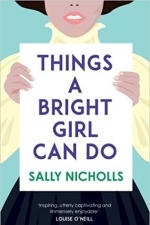
Things a Bright Girl Can Do
Book
Through rallies and marches, in polite drawing rooms and freezing prison cells and the...
young adult
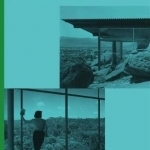
Albert Frey and Lina Bo Bardi: A Search for Living Architecture
Daniell Cornell, Zeuler Rocha Mello De Almeida Lima, Joseph Rosa and Cathrine Veikos
Book
This book proposes a dialogue between two key 20th-century architects, Albert Frey and Lina Bo...
This is a scenario people may have to face one day, especially with the shape the world is in today. Even now people are faced with sticking with their morals and values, from helping our fellow man to the decision of holding a door open for a stranger. The Road, Cormac McCarthy's Pulitzer Prize winning novel, brings the very question of humanity to the forefront, as well as how hard it is to hold onto it.
The father, The Road's main character, takes us on a journey through the mountains in a burned-out America, but the fires that took over are never explained and they didn't need to be. Apparently having been on the move for a couple of years, he wants to take his young son South to survive the winter months that are very close by. Readers get glimpses of what happened the night the grid went down from the father's point-of-view, but so many years have passed that the memories are few, the facts aren't completely straight, and any type of life before the fires seems to have been just a dream. So the two begin the story heading South, dragging everything they have scavenged in their travels inside of a metal shopping cart, and the father isn't sure they'll make it out of the mountains before winter. He only has tattered pieces of a map that they have carried for a long time, having numbered each piece with a broken crayon they had found, making it hard to estimate how far they need to travel.
While traveling, they very rarely run into other people, at one point, when they run into a very bad man, the father realizes he hasn't spoken to another person (other than his son) in at least a year. This is mostly because the majority of people that are still alive are the type of people that would rather kill you and take whatever you have than speak to you. Even most of the houses they come upon are burned and abandoned, but the father sees these buildings as a chance to find food and supplies: "The roadside hedges were gone to rows of black and twisted brambles. No sign of life. He left the boy standing in the road holding the pistol while he climbed an old set of limestone steps and walked down the porch of the farmhouse shading his eyes and peering in the windows. He let himself in through the kitchen. Trash in the floor, old newsprint. China in a breakfront, cups hanging from their hooks. He went down the hallway and stood in the door to the parlor. There was an antique pumporgan in the corner. A television set. Cheap stuffed furniture together with an old handmade cherrywood chifforobe. He climbed the stairs and walked through the bedrooms. Everything covered with ash. A child's room with a stuffed dog on the windowsill looking out at the garden. He went through the closets. He stripped back the beds and came away with two good woolen blankets and went back down the stairs. In the pantry were three jars of homecanned tomatoes. He blew the dust from the lids and studied them. Someone before him had not trusted them and in the end neither did he and he walked out with the blankets over his shoulder and they set off along the road again. " The young son is usually left close by outside because he seems scared that either there will be bad people or dead people inside.
Throughout this incredible, heart wrenching novel, the father slowly becomes more ill with what seems to be a case of pneumonia, possibly caused by all of the ash that is in the air from the fires; this makes him cough uncontrollably. Yet, he doesn't focus on that he may not live too much longer, instead he tries everything to get his son as far South as possible without too much of a plan of what to do when they get there.
The horror of this book is brought to light by the realism of what could happen if the world were to end, when people lose their humanity and begin to kill and eat their fellow humans. It leaves us wondering if we could hold onto what we are today when the basic need for shelter and food become more important than another person's life. But the father and son are examples of the few individuals who are able to hold onto their humanity during the end of the world: they share supplies if they can, they don't kill humans or animals to feed themselves, and they live by one rule: if a person is still alive, they take nothing from them.
The struggle these two go through is very real and believable, and McCarthy's writing is so well done that this book is hard to put down. Even while reading, most won't notice that there is only one character in the entire story that is given a name; our two main characters are never addressed by anything other than Papa or son/boy. The father's worry about keeping his son alive and unharmed is heartbreaking, for instance, one scene where he believes that he and his son are going to be found by cannibals, he quickly goes over with his son on how to shoot himself with the pistol, so neither of them will be taken alive. As a parent, I choked up in quite a few scenes, including this one - - - and as with the film adaptation, I cried heartily at the end.
This emotional, dark novel is an amazing book to read. The Road is bound to leave readers questioning what they would do in the same circumstances as the father. I highly recommend this book to people who love dystopian novels, but beware, this is a story you won't be able to forget.
So, what's it about? Well, a pair of London coppers (cockney geezer and troubled waif) stumble upon a USB stick containing the government's advance planning for the end of the world, which is due in about five years. Quite what form this planning takes is a little unclear, as it neglects to mention just what form the apocalypse is going to take (which if nothing else allows the show a nice big revelation at the end of the season). Geezer and Waif must try to get the truth out there while fending off government agents who want them dead!
Except, it's not really about that: news of the impending catastrophe, whatever it is, lures various nutters out of the woodwork to start committing grisly murders, and - wouldn't you know it - whenever Geezer and Waif get a spare moment from being hunted by the government, they have to go around catching them By Any Means Necessary! (At one point Geezer contemplates waterboarding an innocent man who's not being cooperative enough.)
Except, it's not just about that, either, for Geezer and Waif have the most implausibly complicated back-stories known to man, involving an extramarital fling, a secure unit, an internal affairs investigation, the murder of Geezer's old partner, a secret deal, and Waif's homicidal grown-up son (who seems to be nearly as old as she is).
All of this stuff bangs together in the most grisly and unlikely fashion, with a general tone of overwrought existential misery (every one of the duo's cases either features a moment where they literally start beating each other up with collapsible truncheons, or one where they sit down together and wail 'What's the point of any of this? We're all going to be dead in five years anyway!').
The sheer ridiculousness of Hard Sun makes it quite watchable in a stick-it-on-in-the-background-while-you're-doing-something else kind of way; every time you find yourself saying 'This can't possibly get any sillier' the show comes right back and proves you wrong. The makers of the show are clearly hoping for a full five year run, counting down to the actual apocalypse itself, although clearly the format is in for a big retool somewhere along the line. Fingers crossed this finds the devoted global audience such a potential cult camp classic deserves.

